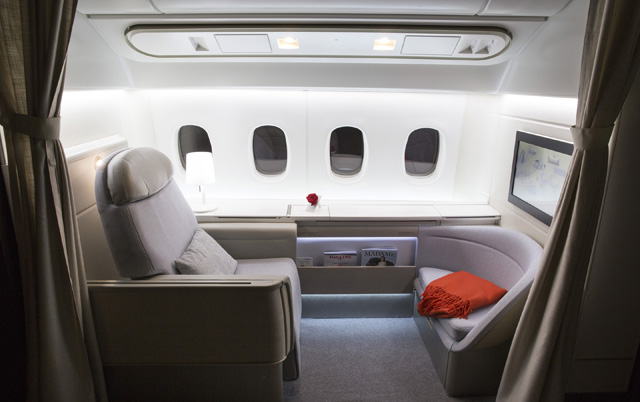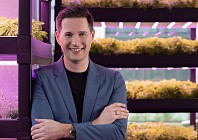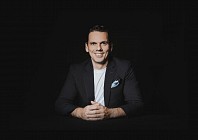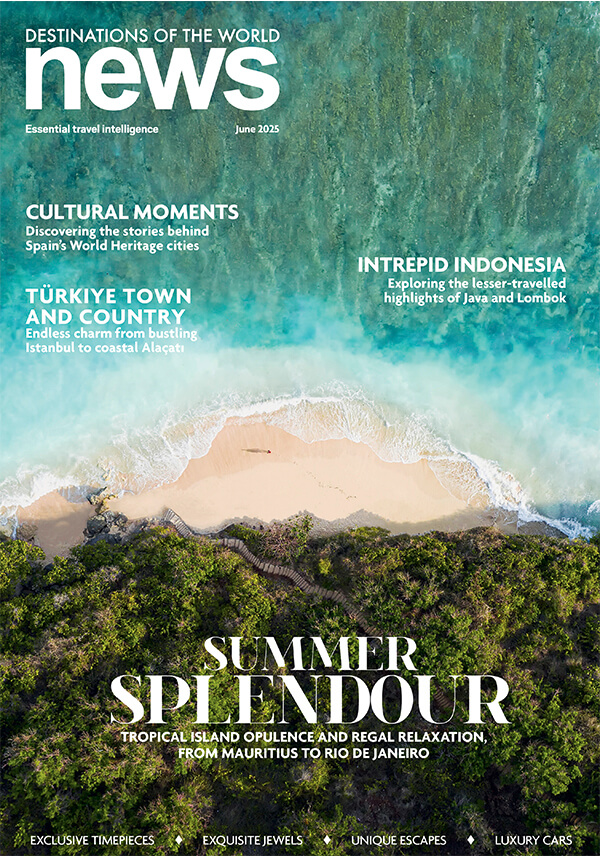European carriers have been through the wringer in recent years, battling with increasing oil prices, fending off tough competition from cash-rich upstarts and facing a never-ending spate of geo-political upheavals that have affected everything from route-planning to security.
But the show must go on, and despite these trying times, or perhaps because of them, competition is fiercer than ever, prompting many carriers to invest heavily in new products, none more so than Air France.
Following a four-year development programme, the French national carrier has unveiled its new ‘Best & Beyond’ product offering; four completely reimagined cabins that are currently being introduced across the airline’s Boeing 777-300 long-haul aircraft fleet.
The investment didn't come cheap; Air France has spent more than half a billion Euros on the new product, which was born partly out of the airline's desire to better serve its customers, and partly as a branding exercise that aims to redefine Air France as a quintessentially French brand.
We caught up with Tjalling Smit, senior vice president of the Middle East, Gulf and India for Air France, to talk about the new product and how it will change the game.
What was the inspiration behind the Best & Beyond product upgrade?
We are spending EUR 500 million to update our product offering on the Boeing 777 aircraft, of which we have 44. It is the backbone of our long-haul fleet. We believe our customers have become used to a higher standard and we felt that Air France was due to answer in that respect. We have initiated this overall product upgrade for all classes and we believe that in all classes we can offer a product that really appeals.
What are premium travellers primarily looking for from their flight experience these days?
I think that around the world we see a trend of people looking for locally-produced goods and for authentic product offerings. This new product offering by Air France really reflects France. It is not for nothing that we say “Air France, France is in the Air”; it is the gastronomy and the cultural heritage of the country being portrayed in these new products, and that is what the customer is increasingly looking for: authenticity. We believe this distinguishes Air France from other carriers.
How have you translated the French tradition of gastronomy into your product?
People like to dine well, and of course, this is something that was invented in France. The culinary tradition of France and the gastronomy is a class in itself, the best in the world, and that is very important in our La Premier and Business product. Air France has a history of teaming up with celebrity chefs and renowned chefs for a very long time. It’s in our DNA to be the best at what we offer in terms of food and beverage.
Do you think the line between first class travel and private jet travel is becoming increasingly blurred?
That is why we are now moving into offering private jets as a connection to Air France flights. We offer La Première services on many of our main routes, however as you can imagine it is not possible economically on many smaller routes to offer La Première. That is why we have teamed up with a private jet operator called Wijet, allowing us to offer a door-to-door first class experience connecting in Charles de Gaulle.
Could this be the beginning of an Air France-KLM division of private jets?
We studied that before: we didn't want to move into that business at that time and we have no ideas to move in there today.
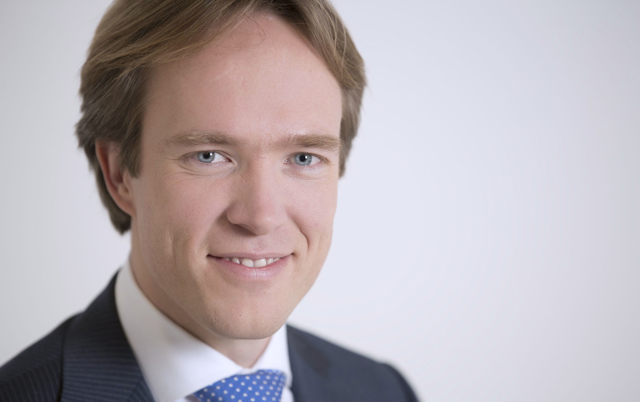
Business is getting better and better – will there always be a place for first class cabins?
We believe there is, which is why we made this grand investment. We believe that there will always be individuals who either professionally require or personally request the kind of luxury and the kind of comfort that La Première is able to offer them. So yes, we absolutely believe there will continue to be a demand for it.
What are your plans for the lounges and ground product?
Our product is not restricted to onboard; we have a very appealing ground product to go with it. It starts when the limo picks the La Première passenger up at home or the office and drives them to the airport, where there is a dedicated reception area. He is escorted to the lounge and then at the last minute he is limo driven from the lounge to the airplane. He will be the last to board and the first to deplane upon arrival. In La Première you don’t see any lines. Everything is personalised and dedicated.
There are some string competitors flying out of the Gulf – is that competition more pronounced in the premium sector?
I think what they have been very good at, these competitors, is creating an image that travel with them means luxury. I’m sure that living in the region, you are very much aware that travel with them is not luxury per se, depending on the class of cabin you travel. But they have been very successful in creating this image.
Yes, we face stiff completion from these carriers, but in general we welcome competition, because it forces us to bring out the best in ourselves and that is what you see here today. Really this triggers us to do better. We do value however the fact that the rules that apply to us should also apply to the competition. The so-called level playing field is very important to us. We believe if you drive a car in France, you have to stick to the French traffic rules, and if you fly to France, you should stick to the French aviation rules and that is not always the case.
Are you talking in terms of pricing?
No, pricing is of course completely up to the carrier itself. It’s more related to the way we treat and are supposed to treat our personnel and those kinds of things.
How do you compete when those carriers are funded by sovereign or state wealth?
We are in the airline business to make money, but I’m not sure about all our competitors. Recently a lot of new entrants to the market are creating a vast network and are trying to gain as much market share as they can without, per se, the idea or the aim to create a sustainable profitable business.
[For us] this is our core business – aviation – and we need to make money with this. That sometimes makes it difficult to compete and indeed, Air France is no longer a state-owned company and therefore we look at everything from an economical perspective. Not all of our competitors are forced to make the same decisions that we are.
Now that you have completed this big investment is there a chance to sit back and relax for a while?
Not a chance. Sitting back and relaxing has never been and never will be part of this industry. This is an ongoing process. This product upgrade is largely confined to the 777 aircraft, but our fleet is bigger than that, so we are now considering the potential expansion of this Best & Beyond product to other parts of our fleet as well. Specifically for La Première we are looking to deploy it on the other aircraft types on which we offer La Première.
How much do current global events worry you?
The aviation industry is extremely turbulent. We are very sensitive to any geopolitical or geo-economical developments, whether it is the unrest in the Middle East and its effect on fuel price – everything has a tremendous and instant impact on the aviation industry. Of course, safety is our number one priority always, not only in our operations, but also in commercial decisions.
We will not operate to countries where there is a sever danger. For instance, we no longer overfly Iraq or Syria, which has a large operational impact; we need to fly over other countries and there is a cost associated with that, but safety is out number one priority.
